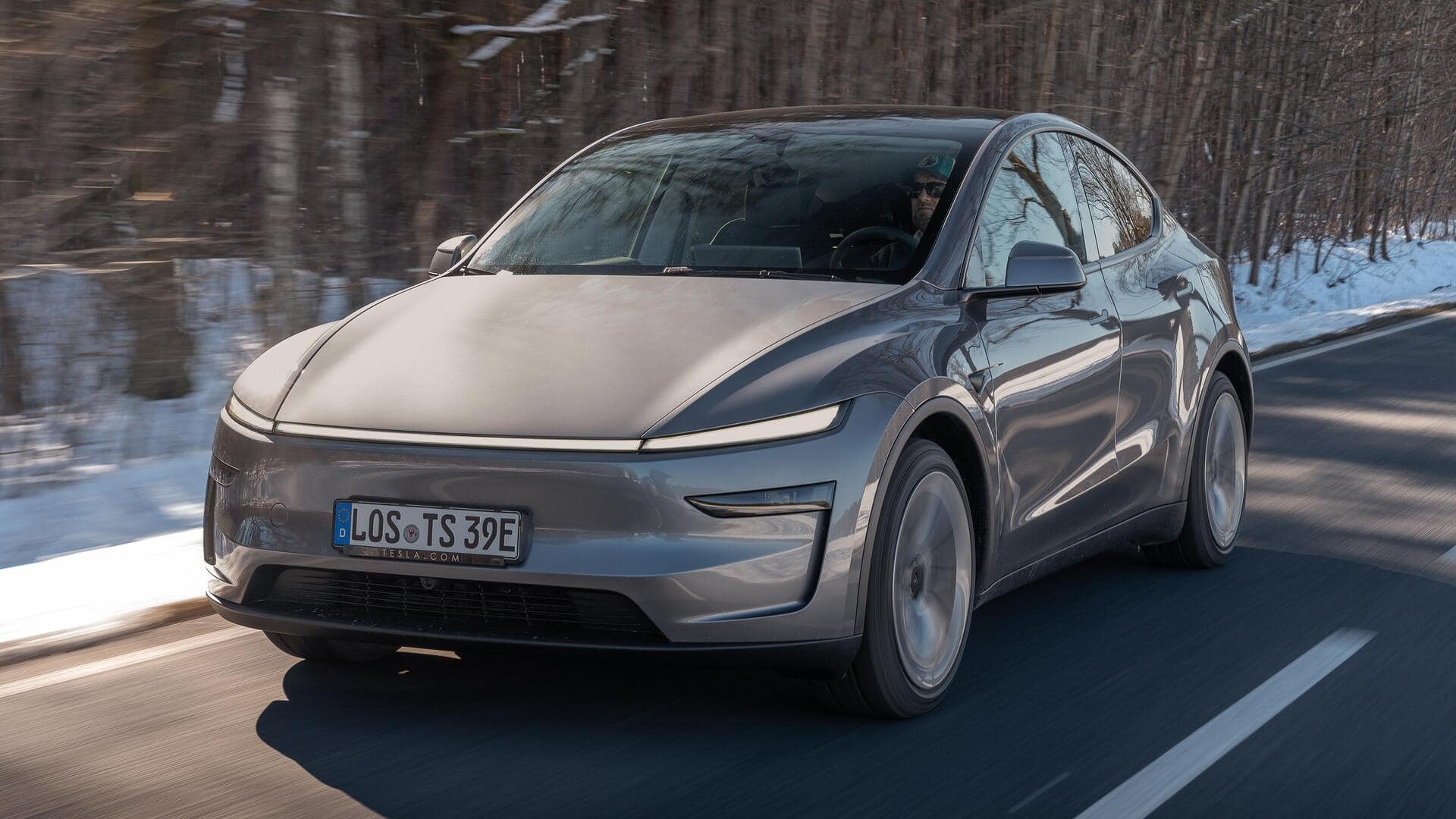
Tesla's US market share hits 8-year low: What's the reason?
What's the story
Tesla's market share in the United States has hit an eight-year low, according to data from Cox Automotive. The company now accounts for just 38% of total electric vehicle (EV) sales in the US as of August 2025. This is a major decline from July when it held a 42% share, and June when its market share was at a high of 48.7%. The drop in Tesla's market share is mainly due to a surge in sales from other automakers.
Market dynamics
Increased competition from other automakers
Companies like Hyundai, Honda, Kia, Toyota, and Volkswagen have offered more attractive incentives than Tesla. This has resulted in a massive increase in EV sales by 60% to 120%, thereby boosting their market shares.
Strategic pivot
Concerns over focus on robotaxis and humanoid robots
Despite the growing competition, Tesla has focused on robotaxis and humanoid robots instead of launching cheaper electric cars. This strategy has raised concerns among investors as much of Tesla's trillion-dollar valuation is dependent on these plans. The company's board has even proposed a $1 trillion pay package for Elon Musk, tied to Tesla's market cap reaching $8.5 trillion over the next decade.
Sales analysis
Sales continue to grow despite market share decline
Despite the decline in market share, Tesla's sales have continued to grow. In July, the company saw a 7% increase in sales to 53,816 units. However, this growth slowed down to just 3.1% in August as the broader market grew by 14%. The data indicates that while Tesla is still selling more cars than before, its growth rate is slowing down compared to other automakers.
Market pressure
The tough choice for Tesla
The decline in market share also highlights Tesla's tough decision between boosting sales with higher, profit-eating incentives or maintaining profits at the cost of losing market share. In a bid to stay competitive, Tesla has been cutting prices in recent years. However, this strategy has been hurting its margins and worrying investors amid rising competition from other automakers.